'This experience has revealed just how much I love music': pianist Paul Lewis on life in lockdown | reviews, news & interviews
'This experience has revealed just how much I love music': pianist Paul Lewis on life in lockdown
'This experience has revealed just how much I love music': pianist Paul Lewis on life in lockdown
On the eve of his return to an empty Wigmore Hall, a very individual artist reflects
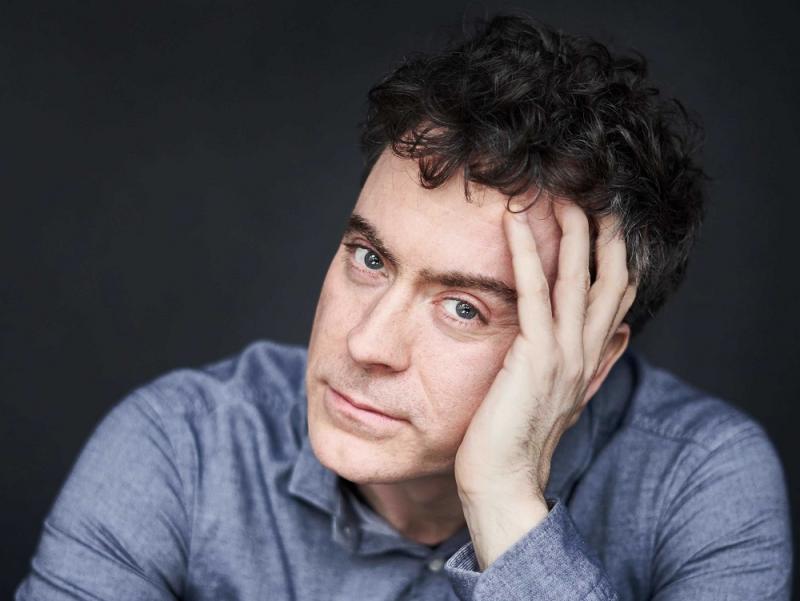
As an instrumentalist, you can sit down and play music and escape from the stress. It’s a privilege to be able to do something that takes you to a different place – you’re removed from everything that’s happening.
I like a bit of structure to my day so that I don’t swim around in lots of time. I practise in the morning until lunchtime. The kids are learning online, so in the afternoon I help them a bit, although I’m not the best schoolteacher. We do things around the house and go for wonderful walks – the dog thinks it’s Christmas. I signed up to a website to volunteer to get shopping and medicines for people who can’t get out. It’s more useful for me to do that than to play the “Moonlight” Sonata online. As a musician, maybe I shouldn’t say that, but it’s true – the desire to help people locally is more important at the moment.
I start practising music slowly, until my fingers feel limbered up. I don’t use exercises, studies or scales: I’ve never been into “playing the piano” – I just like exploring music. I learn notes very methodically, with both hands separately, taking my time. Once that settles, I start to enjoy it. The process doesn’t sound much fun and it’s not, but without deadlines for concerts, I’ve been enjoying it much more, because there’s more freedom to play around. [Pictured below: Paul Lewis playing at his Midsummer Music festival in 2014] 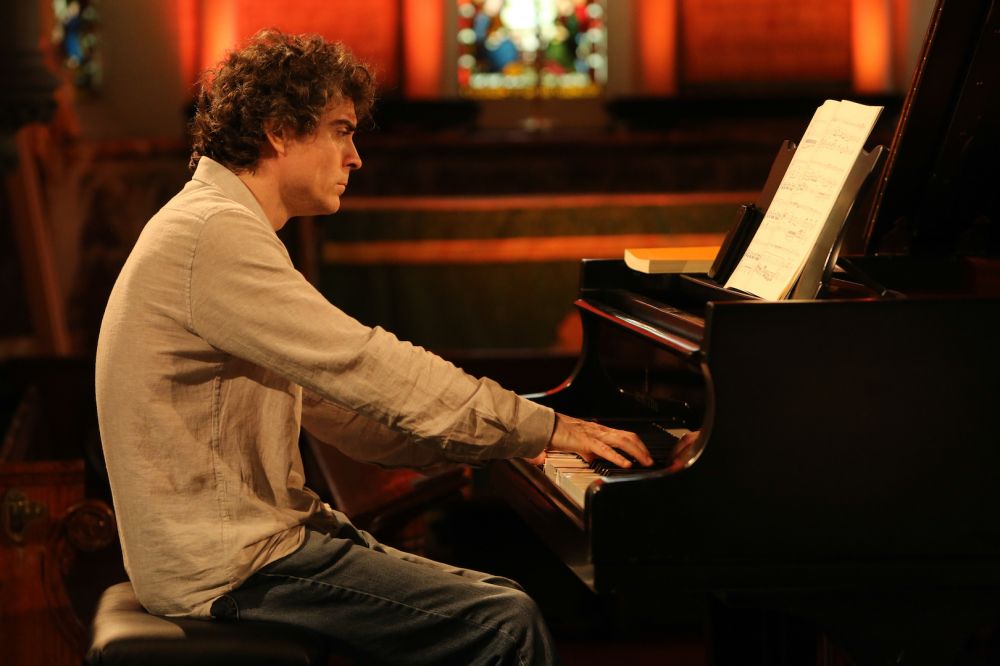 It has been a gift to have the opportunity to learn many pieces that I may not have had time to study otherwise. I’ve been throwing myself into new repertoire, filling the gaps of my Mozart concertos and sonatas. For some reason, I’ve been drawn to his music in particular. Mozart keeps us in touch with so many things, and one of those is optimism. That’s something particularly attractive and necessary for these times.
It has been a gift to have the opportunity to learn many pieces that I may not have had time to study otherwise. I’ve been throwing myself into new repertoire, filling the gaps of my Mozart concertos and sonatas. For some reason, I’ve been drawn to his music in particular. Mozart keeps us in touch with so many things, and one of those is optimism. That’s something particularly attractive and necessary for these times.
I’ve also been looking at solo Debussy and working on Ravel’s G major Piano Concerto, which is such a positive piece – maybe that’s why it came to my mind. I haven’t played it for decades. Beethoven, Schubert and the Germanic Classical repertoire have become the core of my work and others have fallen by the wayside, but until my 20s, I used to play a lot of virtuoso and late-Romantic repertoire, so it’s been nice to get back in touch with those.
I also took Balakirev’s Islamey off the shelf. It was my party piece when I was 15 until my early 20s and I haven’t played it in 25 years. I hoofed my way through it slowly, seeing my old fingerings, which was interesting. When you’re 18 you blast in with brute force and all your physical ability, but 30 years later you think differently, finding clever ways to do things without being so physical. With more experience you can look behind the notes – physically as well as musically – and find different ways to make things sound good. Looking at pieces you haven’t played for a long time allows you to see what has happened that you haven’t necessarily noticed.
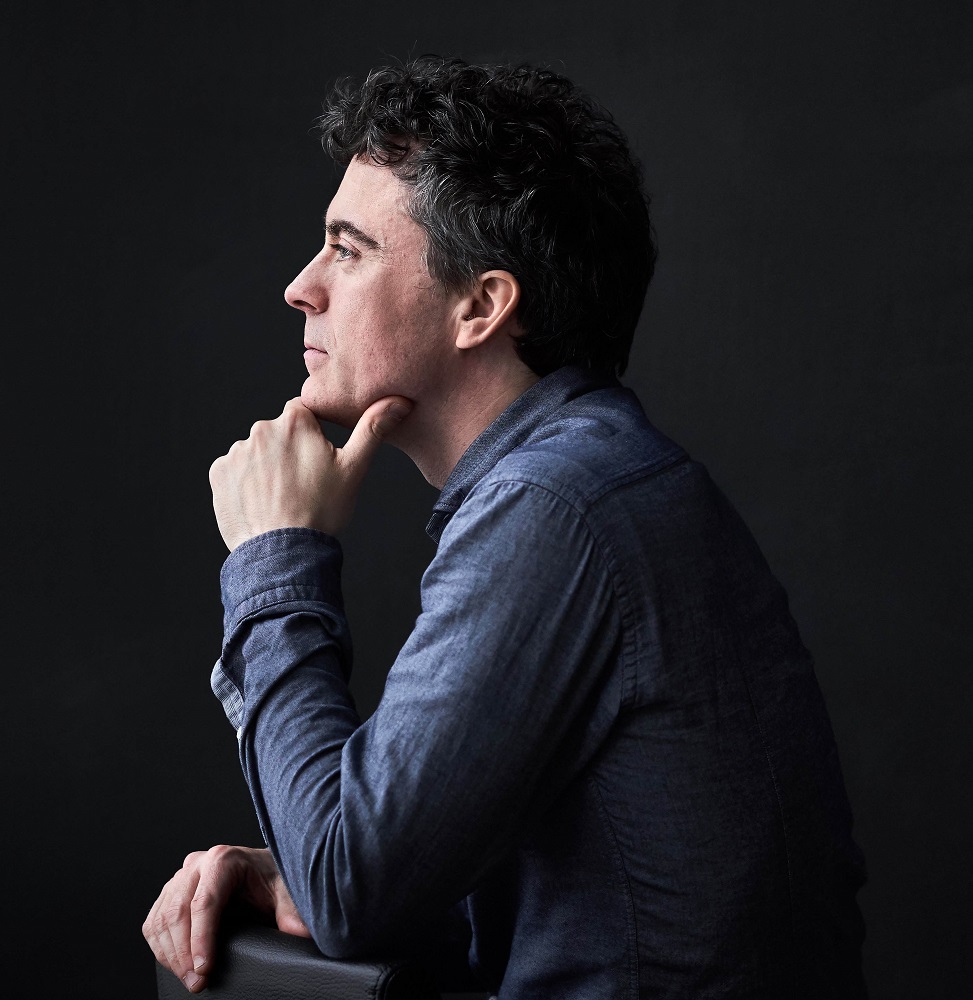 That’s why you have to be open to change as a musician. The same formulas won’t work indefinitely. You may have played a piece for 30 years and think you know it well, but if it’s truly great music, you’ll come back to it and see something you didn’t find last time. What happens in your own life affects the way you approach music and can change what you see from one performance to another. We evolve as musicians throughout our lives.
That’s why you have to be open to change as a musician. The same formulas won’t work indefinitely. You may have played a piece for 30 years and think you know it well, but if it’s truly great music, you’ll come back to it and see something you didn’t find last time. What happens in your own life affects the way you approach music and can change what you see from one performance to another. We evolve as musicians throughout our lives.
This experience has revealed just how much I love music. It’s fantastic to connect with it separately from the business side – the getting on planes, arriving and stress of performing. If I didn’t play another concert, I’d be very sad and would have to find another way of earning a living, but I’d still play, I’d still have music. I’ve been reminded of that.
The main challenge is the uncertainty of knowing what the path is going to be. Scientists will find the answers because that’s what they do, but we don’t know when. We want to turn the clock forward to know where we’ll be in one or two years, but we can’t do that, so we have to make the best of it. Everyone has their own way to do that.
There’s going to be a very long recovery period once things start happening again, both financially and in terms of people’s confidence. It’s going to be more difficult to travel, because none of us wants to arrive in a country and have to bed down for two weeks before we can do anything, and again when we get back. It’s impractical. Maybe there will be more concerts near where we live for a while, which is fine. 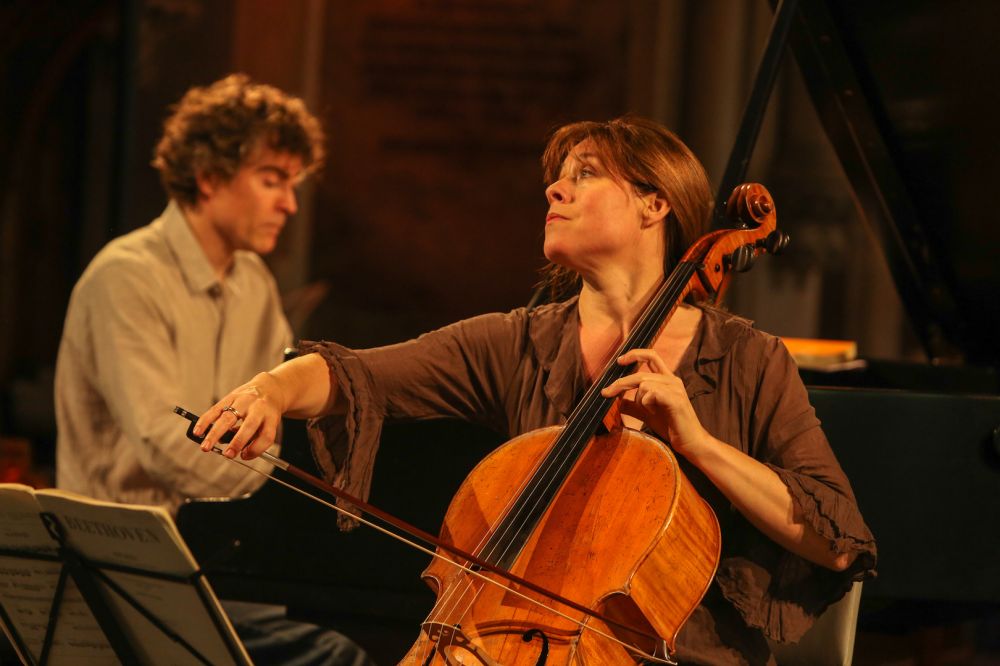 My wife [Bjørg Lewis, pictured above with him at Midsummer Music in 2014] and I have our own summer festival, which has been cancelled for this year, and we’re starting to think about 2021. Not knowing what the situation will be then, we’re trying to create space in our plans. If we can only have 50 people in the audience, how do we manage that? How do we make it relevant in these new, temporary circumstances? Everyone is just going to have to think creatively for a while.
My wife [Bjørg Lewis, pictured above with him at Midsummer Music in 2014] and I have our own summer festival, which has been cancelled for this year, and we’re starting to think about 2021. Not knowing what the situation will be then, we’re trying to create space in our plans. If we can only have 50 people in the audience, how do we manage that? How do we make it relevant in these new, temporary circumstances? Everyone is just going to have to think creatively for a while.
I’m getting ahead with my recital repertoire for next season so that when I eventually do have to perform, I’m not worried. We have to be ready whenever that actually happens. We’ll all be eager – I believe people will be desperate for these experiences once this period of isolation is over because this is not who we are. People talk of the ‘new normal’, but it’s only a temporary new normal. As human beings we need contact and experience, and to keep in touch. This might go on for a while, but it has to be temporary, because we need connection.
Some thoughts, finally, on education. My daughter is doing GCSE Music and one of the things I’m discovering with home schooling is that the syllabus is awful. It’s drab and strips the emotional, expressive side of music to theoretical terms. I’m not against musical analysis and scholarship – it plays an important part in how you build an interpretation – but the course is completely removed from music. It seems to be a box-ticking exercise. You can study it without any connection to music at all.
I’m not surprised that 15-year-olds might not be interested in music if they think this is what it’s about. I don’t even understand the course – it promotes ways of thinking about and describing music that are not recognisable to me or any musician I know. That’s been a shocking revelation to me. How did we arrive at the point where we set this for teenagers who are interested enough to want to spend time studying it? Music is a human experience. We don’t go to concerts because we want to inform ourselves in an academic way – it’s far more than that.
Discovering this has reinforced my feelings about how important it is for musicians to get into schools and give children access to quality music making at an early age. With our festival we always have a concert for primary schools and we invite GCSE and A Level pupils from the local secondary school to one of our other concerts. That kind of exposure is so important, so that music isn’t distant. 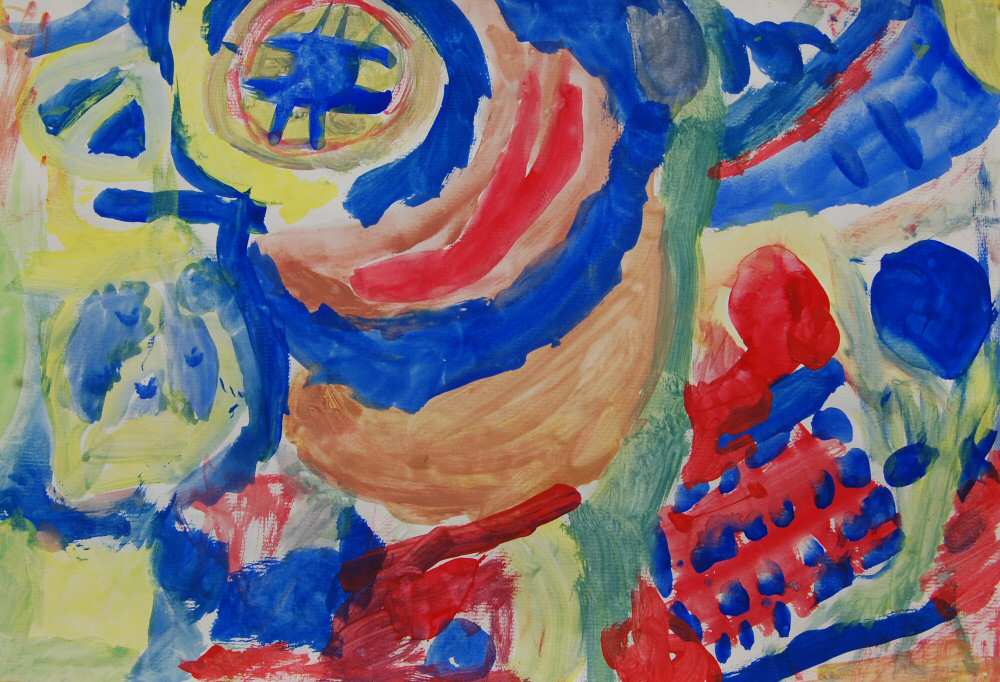 From the second year of our festival, we decided to have a schools concert and invited seven- and eight-year-olds. I played the last movement of a Schubert sonata, which is one of the most austere, bleak, distressing of all his works. I said to them, "I’m going not going say anything about this, you can just tell me what you think afterwards." After I played, there were hands in the air and they described the music precisely. They said it sounded as if the composer was scared of something, like he was running away, or that he was remembering something in the past. In Schubert there is such a lot of nostalgia for things you can’t have any more, and they were spot on. [Pictured above: one visual response to the music].
From the second year of our festival, we decided to have a schools concert and invited seven- and eight-year-olds. I played the last movement of a Schubert sonata, which is one of the most austere, bleak, distressing of all his works. I said to them, "I’m going not going say anything about this, you can just tell me what you think afterwards." After I played, there were hands in the air and they described the music precisely. They said it sounded as if the composer was scared of something, like he was running away, or that he was remembering something in the past. In Schubert there is such a lot of nostalgia for things you can’t have any more, and they were spot on. [Pictured above: one visual response to the music].
I realised that you don’t have to give them the Harry Potter soundtrack. You can give them emotionally complex music, and at that age they can connect with it. There are no barriers. They can tell you exactly what it is. We’ve done that every year since, and it’s one of the most rewarding parts of the festival. Classical music becomes uncool sometime in the teenage years, unless you make a connection with it, although you don’t have to let on to your friends that you actually find it quite cool. It’s important to give them that experience early and light that flame, though.
Explore topics
Share this article
The future of Arts Journalism
You can stop theartsdesk.com closing!
We urgently need financing to survive. Our fundraising drive has thus far raised £49,000 but we need to reach £100,000 or we will be forced to close. Please contribute here: https://gofund.me/c3f6033d
And if you can forward this information to anyone who might assist, we’d be grateful.

Subscribe to theartsdesk.com
Thank you for continuing to read our work on theartsdesk.com. For unlimited access to every article in its entirety, including our archive of more than 15,000 pieces, we're asking for £5 per month or £40 per year. We feel it's a very good deal, and hope you do too.
To take a subscription now simply click here.
And if you're looking for that extra gift for a friend or family member, why not treat them to a theartsdesk.com gift subscription?
more Classical music
 Cho, LSO, Pappano, Barbican review - finely-focused stormy weather
Chameleonic Seong-Jin Cho is a match for the fine-tuning of the LSO’s Chief Conductor
Cho, LSO, Pappano, Barbican review - finely-focused stormy weather
Chameleonic Seong-Jin Cho is a match for the fine-tuning of the LSO’s Chief Conductor
 Appl, Levickis, Wigmore Hall review - fun to the fore in cabaret and show songs
A relaxed evening of light-hearted fare, with the accordion offering unusual colours
Appl, Levickis, Wigmore Hall review - fun to the fore in cabaret and show songs
A relaxed evening of light-hearted fare, with the accordion offering unusual colours
 Lammermuir Festival 2025, Part 2 review - from the soaringly sublime to the zoologically ridiculous
Bigger than ever, and the quality remains astonishingly high
Lammermuir Festival 2025, Part 2 review - from the soaringly sublime to the zoologically ridiculous
Bigger than ever, and the quality remains astonishingly high
 BBC Proms: Ehnes, Sinfonia of London, Wilson review - aspects of love
Sensuous Ravel, and bittersweet Bernstein, on an amorous evening
BBC Proms: Ehnes, Sinfonia of London, Wilson review - aspects of love
Sensuous Ravel, and bittersweet Bernstein, on an amorous evening
 Presteigne Festival 2025 review - new music is centre stage in the Welsh Marches
Music by 30 living composers, with Eleanor Alberga topping the bill
Presteigne Festival 2025 review - new music is centre stage in the Welsh Marches
Music by 30 living composers, with Eleanor Alberga topping the bill
 Lammermuir Festival 2025 review - music with soul from the heart of East Lothian
Baroque splendour, and chamber-ensemble drama, amid history-haunted lands
Lammermuir Festival 2025 review - music with soul from the heart of East Lothian
Baroque splendour, and chamber-ensemble drama, amid history-haunted lands
 BBC Proms: Steinbacher, RPO, Petrenko / Sternath, BBCSO, Oramo review - double-bill mixed bag
Young pianist shines in Grieg but Bliss’s portentous cantata disappoints
BBC Proms: Steinbacher, RPO, Petrenko / Sternath, BBCSO, Oramo review - double-bill mixed bag
Young pianist shines in Grieg but Bliss’s portentous cantata disappoints
 theartsdesk at the Lahti Sibelius Festival - early epics by the Finnish master in context
Finnish heroes meet their Austro-German counterparts in breathtaking interpretations
theartsdesk at the Lahti Sibelius Festival - early epics by the Finnish master in context
Finnish heroes meet their Austro-German counterparts in breathtaking interpretations
 Classical CDs: Sleigh rides, pancakes and cigars
Two big boxes, plus new music for brass and a pair of clarinet concertos
Classical CDs: Sleigh rides, pancakes and cigars
Two big boxes, plus new music for brass and a pair of clarinet concertos
 Waley-Cohen, Manchester Camerata, Pether, Whitworth Art Gallery, Manchester review - premiere of no ordinary violin concerto
Images of maternal care inspired by Hepworth and played in a gallery setting
Waley-Cohen, Manchester Camerata, Pether, Whitworth Art Gallery, Manchester review - premiere of no ordinary violin concerto
Images of maternal care inspired by Hepworth and played in a gallery setting
 BBC Proms: Barruk, Norwegian Chamber Orchestra, Kuusisto review - vague incantations, precise laments
First-half mix of Sámi songs and string things falters, but Shostakovich scours the soul
BBC Proms: Barruk, Norwegian Chamber Orchestra, Kuusisto review - vague incantations, precise laments
First-half mix of Sámi songs and string things falters, but Shostakovich scours the soul
 BBC Proms: Alexander’s Feast, Irish Baroque Orchestra, Whelan review - rapturous Handel fills the space
Pure joy, with a touch of introspection, from a great ensemble and three superb soloists
BBC Proms: Alexander’s Feast, Irish Baroque Orchestra, Whelan review - rapturous Handel fills the space
Pure joy, with a touch of introspection, from a great ensemble and three superb soloists

Add comment